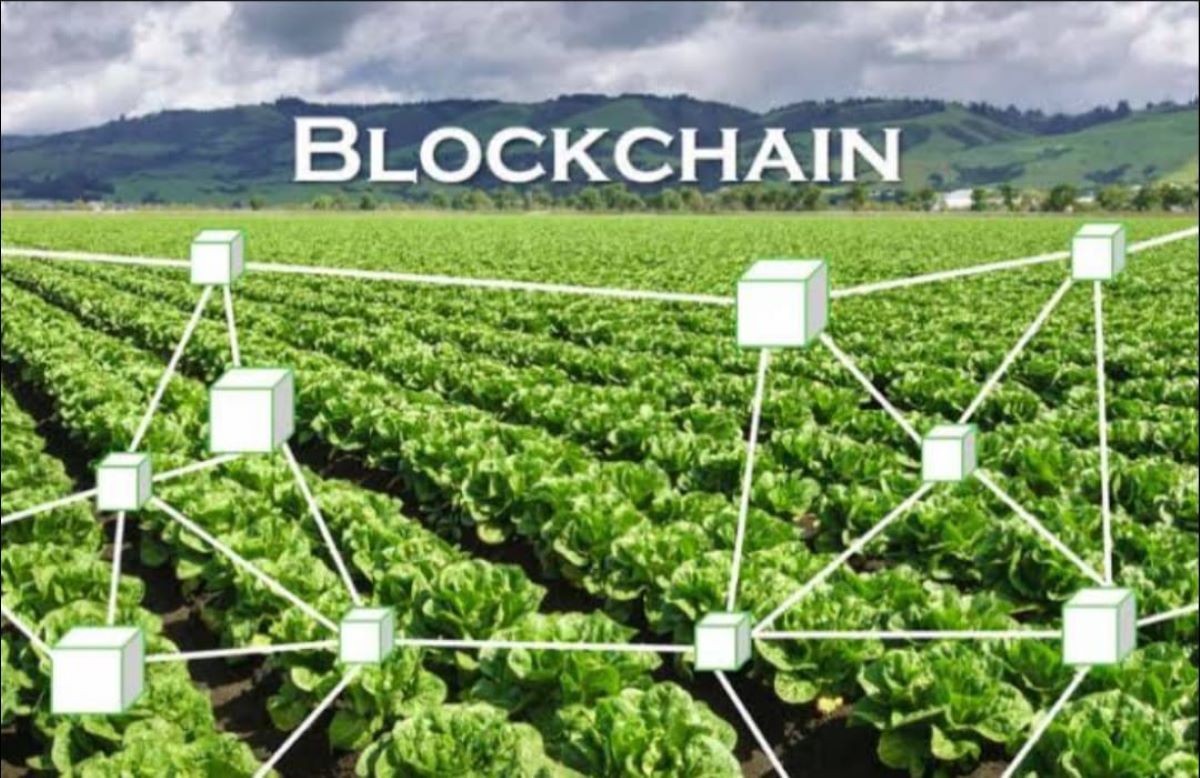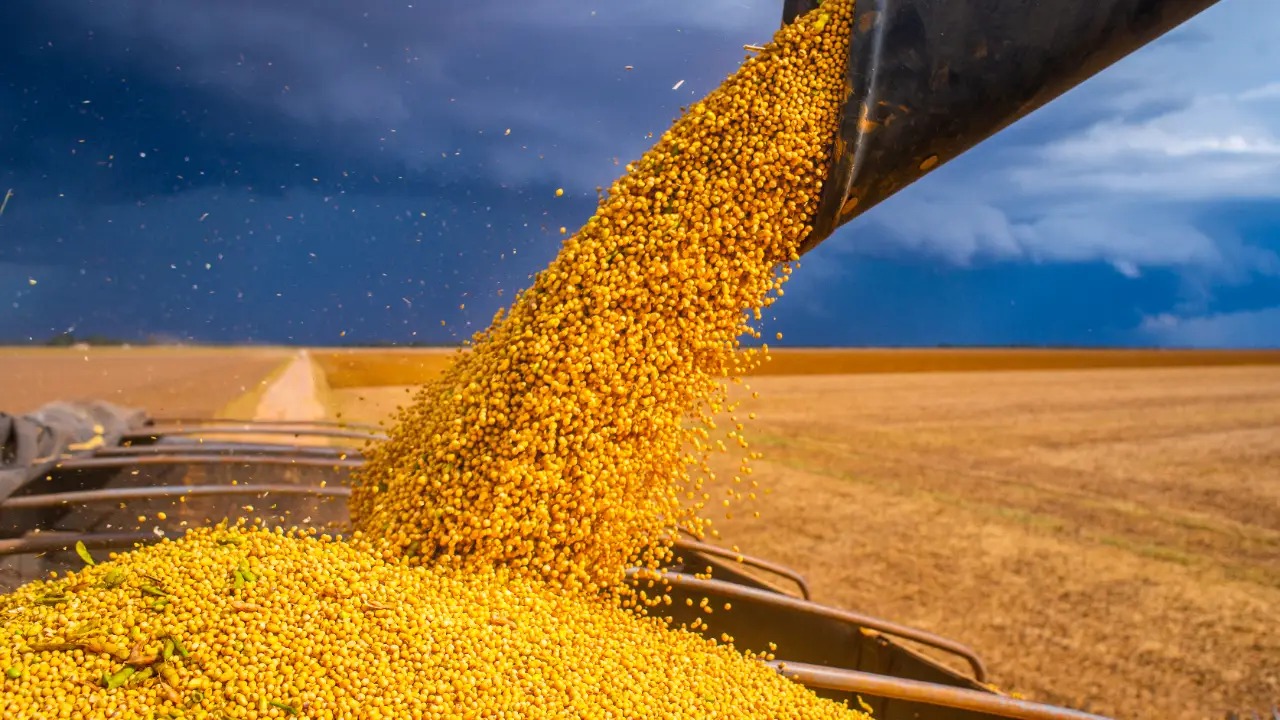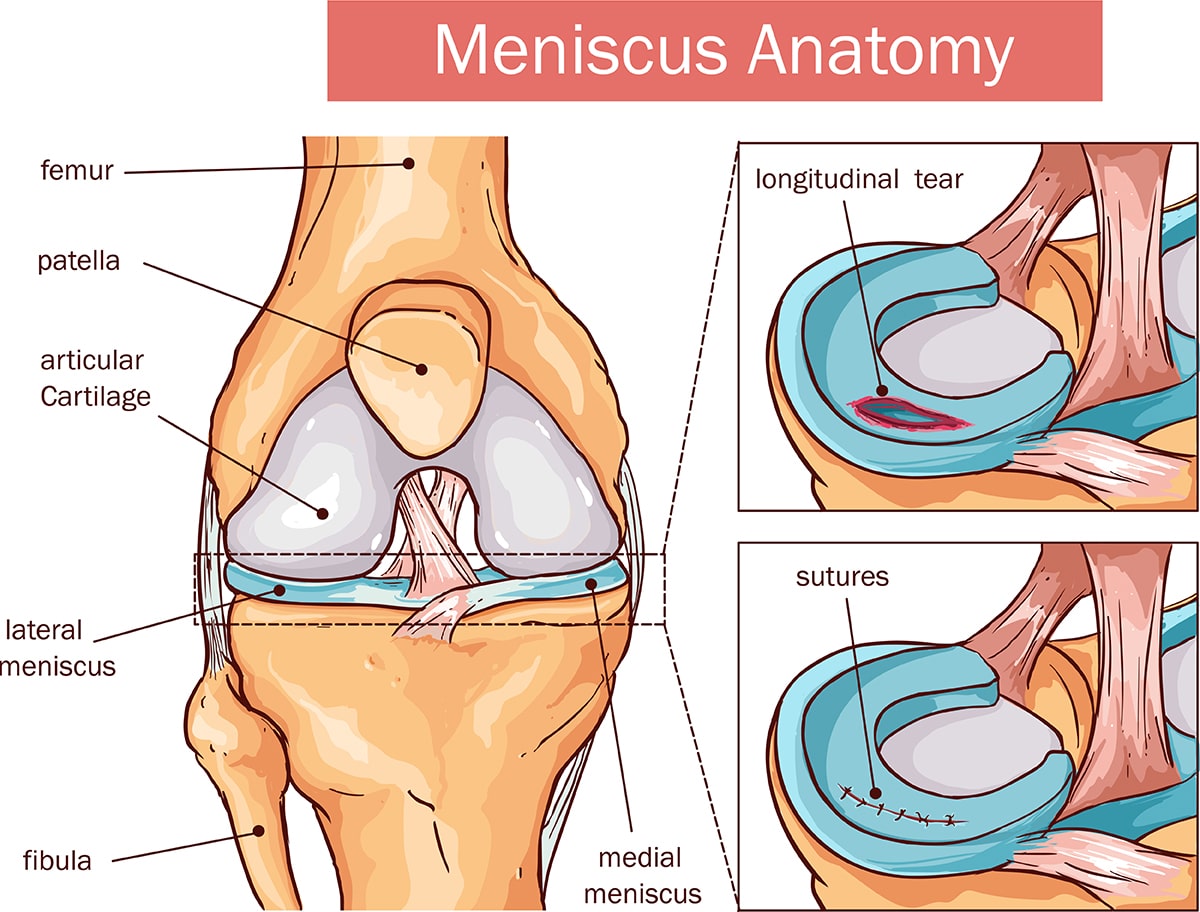

Finance
What Is Blockchain Technology In Agriculture
Published: November 3, 2023
Discover the potential of blockchain technology in the agriculture industry and its impact on finance. Learn how this innovative solution is revolutionizing financial transactions in agriculture.
(Many of the links in this article redirect to a specific reviewed product. Your purchase of these products through affiliate links helps to generate commission for LiveWell, at no extra cost. Learn more)
Table of Contents
- Introduction
- Definition of Blockchain Technology
- Overview of the Agriculture Industry
- Potential Applications of Blockchain Technology in Agriculture
- Benefits of Implementing Blockchain Technology in Agriculture
- Challenges and Considerations in Adopting Blockchain Technology in Agriculture
- Case Studies of Blockchain Technology Implementation in Agriculture
- Future Outlook and Trends of Blockchain Technology in Agriculture
- Conclusion
Introduction
The agriculture industry is a vital sector that provides food, fuel, and fiber to sustain the growing global population. However, while technology has advanced in many areas, the agriculture sector has faced challenges in terms of transparency, traceability, and inefficiencies in supply chains. This is where blockchain technology comes into play, offering immense potential to revolutionize the agriculture industry.
Blockchain technology, originally developed for cryptocurrencies like Bitcoin, has transcended its initial application and has found relevance in various industries. It is essentially a decentralized and immutable ledger that records transactions across multiple computers, ensuring transparency, security, and trust. The potential benefits of implementing blockchain technology in agriculture are vast, ranging from improved traceability and supply chain management to enhanced food safety and reduced fraud.
In this article, we will delve into the concept of blockchain technology and explore its potential applications in the agriculture industry. We will discuss the benefits of adopting blockchain technology in agriculture, as well as the challenges that need to be addressed. Furthermore, we will present case studies of successful blockchain technology implementation in the agriculture sector and provide insights into the future outlook and trends.
By harnessing the power of blockchain technology, the agriculture industry has the opportunity to create a more transparent, efficient, and sustainable ecosystem. Let us now explore the possibilities and potential of blockchain technology in shaping the future of agriculture.
Definition of Blockchain Technology
Before diving into the applications and benefits of blockchain technology in agriculture, it is important to understand what exactly blockchain technology is.
At its core, blockchain technology is a decentralized and distributed digital ledger that records transactions across multiple computers. Each transaction or data entry, known as a “block,” is linked together in a chronological order to form a “chain.” This chain of blocks is stored on computers, or nodes, spread throughout the network. Unlike traditional centralized systems, where a single authority controls the database, blockchain is built on a trustless and transparent network.
One of the key features of blockchain technology is its immutability. Once a transaction is recorded on the blockchain, it cannot be altered or tampered with, providing a high level of security and trust. Additionally, blockchain is designed to be transparent, allowing all participants in the network to view the transaction history. This transparency enhances trust among stakeholders and reduces the risk of fraud or manipulation.
Blockchain technology is also characterized by its decentralization. Instead of relying on a central authority, such as a bank or government, to validate transactions, blockchain uses a consensus mechanism. This means that multiple nodes in the network must agree on the validity of a transaction before it is added to the blockchain. This decentralized nature eliminates the need for intermediaries, reduces costs, and accelerates transaction processing times.
Moreover, blockchain technology employs cryptographic techniques to ensure the security and privacy of transactions. Each block in the chain contains a unique identifier, a timestamp, and a cryptographic hash, which is a mathematical function that transforms data into a fixed-size string of characters. This hash serves as a digital fingerprint, ensuring the integrity and authenticity of the data.
Overall, blockchain technology offers a secure, transparent, and decentralized platform for recording and verifying transactions. It has the potential to revolutionize various industries, including agriculture, by improving trust, traceability, and efficiency.
Overview of the Agriculture Industry
The agriculture industry plays a crucial role in our society, providing essential resources such as food, fiber, and fuel. It encompasses a wide range of activities, including crop cultivation, livestock farming, fisheries, forestry, and agribusiness. With a growing global population and increasing demand for sustainable food production, the agriculture industry faces numerous challenges that can be addressed through the implementation of blockchain technology.
The agriculture sector is characterized by complex supply chains involving multiple stakeholders, including farmers, processors, distributors, retailers, and consumers. This complexity often leads to inefficiencies, lack of transparency, and difficulties in ensuring the quality and safety of products. Additionally, issues such as food fraud, counterfeit products, and mislabeling pose significant risks to both consumers and the industry as a whole.
By implementing blockchain technology, the agriculture industry can overcome these challenges and create a more efficient and transparent ecosystem. Blockchain offers the potential for end-to-end traceability, enabling stakeholders to track the journey of agricultural products from farm to fork. This traceability ensures that consumers can have confidence in the origin, quality, and safety of the products they purchase.
Furthermore, the agriculture industry can benefit from blockchain technology in terms of supply chain management. By using blockchain, farmers and other stakeholders can securely and accurately record information such as crop yields, farming practices, and transportation details. This data can be readily accessible to all authorized participants, facilitating better decision-making, optimizing processes, and reducing wastage throughout the supply chain.
Another significant aspect of the agriculture industry is the presence of smallholder farmers, who often face challenges in accessing financial services and markets due to lack of documentation and trust. Blockchain technology can help address these issues by providing a secure and transparent platform for recording land ownership, contractual agreements, and financial transactions. This, in turn, can enable smallholder farmers to access credit, engage in fair trade, and participate more effectively in the global agricultural market.
In summary, the agriculture industry is a vital sector that faces various challenges related to transparency, traceability, and efficiency. Blockchain technology offers promising solutions to these challenges, enabling stakeholders to create a more transparent, secure, and sustainable agricultural ecosystem.
Potential Applications of Blockchain Technology in Agriculture
Blockchain technology has the potential to transform the agriculture industry by addressing key challenges and revolutionizing various aspects of the ecosystem. Here are some potential applications of blockchain technology in agriculture:
-
Supply Chain Traceability: One of the most significant potentials of blockchain technology in agriculture is enhancing supply chain traceability. By recording every transaction and movement of agricultural products on the blockchain, stakeholders can have real-time visibility into the origin, production practices, handling, and transportation of the products. This transparency allows for better quality control, preventing the entry of counterfeit or unsafe products into the market.
-
Smart Contracts: Blockchain technology can facilitate the implementation of smart contracts in the agriculture industry. Smart contracts are self-executing contracts with predefined rules and conditions. These contracts can automate various processes, such as payment settlements, insurance claims, and cross-border transactions. By eliminating the need for intermediaries and manual paperwork, smart contracts streamline operations, reduce costs, and mitigate disputes.
-
Data Management: The agriculture industry generates vast amounts of data, ranging from crop yields and weather patterns to market prices and consumer preferences. Blockchain technology can provide a secure and decentralized platform for storing and managing this data. By securely sharing data among stakeholders, researchers, and policymakers, blockchain can facilitate data-driven decision-making, optimize resource allocation, and foster innovation in the agriculture sector.
-
Farm-to-Consumer Transparency: Blockchain technology enables consumers to have direct access to information about the agricultural products they consume. By scanning QR codes or using mobile applications, consumers can trace the journey of the products, verify their authenticity, learn about the farming practices, and make informed purchasing decisions. This transparency can enhance consumer trust, promote sustainable farming practices, and support fair trade.
-
Financial Inclusion: Blockchain technology can play a significant role in enhancing financial inclusion for smallholder farmers. By recording land ownership, contract agreements, and financial transactions on the blockchain, farmers can establish a verifiable and trustworthy digital identity. This identity can enable farmers to access credit, insurance, and other financial services, thereby empowering them to improve productivity, invest in sustainable farming practices, and participate more effectively in the agricultural value chain.
These are just a few potential applications of blockchain technology in agriculture. The versatility and adaptability of blockchain make it well-suited to address the unique challenges and requirements of the agriculture industry. As technology continues to evolve, it is essential for stakeholders in the agriculture sector to explore and leverage the potential of blockchain for sustainable and efficient agricultural practices.
Benefits of Implementing Blockchain Technology in Agriculture
Implementing blockchain technology in the agriculture industry can bring about numerous benefits, addressing key challenges and enhancing the overall ecosystem. Here are some of the significant benefits of adopting blockchain technology in agriculture:
- Improved Traceability: Blockchain technology enables end-to-end traceability of agricultural products, from farm to fork. Every transaction or movement of the products is recorded on the blockchain, providing transparency and visibility into the origin, production practices, and handling of the products. This traceability enhances food safety, prevents the entry of counterfeit or unsafe products into the market, and enables consumers to make informed choices.
- Enhanced Supply Chain Efficiency: Blockchain technology streamlines supply chain operations by eliminating intermediaries, reducing paperwork, and ensuring real-time visibility of transactions. This improves efficiency, reduces costs, and accelerates the movement of agricultural products throughout the supply chain. Stakeholders can access accurate and up-to-date information, enabling better decision-making, optimized inventory management, and faster delivery.
- Increased Trust and Transparency: Blockchain technology enhances trust among stakeholders by providing a transparent and immutable record of transactions. This transparency reduces the risk of fraud, counterfeiting, and mislabeling, as all participants can verify the authenticity and integrity of the data. Increased trust fosters better collaboration, strengthens business relationships, and enhances the overall integrity of the agriculture industry.
- Efficient Data Management: The agriculture industry generates vast amounts of data, ranging from farming practices and crop yields to market prices and consumer preferences. Blockchain technology provides a secure and decentralized platform for storing and managing this data. It facilitates data sharing among stakeholders, researchers, and policymakers, enabling data-driven decision-making, resource optimization, and innovation in the agriculture sector.
- Secured Transactions and Payments: Blockchain technology enables secure and transparent transactions and payments within the agriculture industry. By leveraging cryptographic techniques, blockchain ensures the integrity and authenticity of transactions, reducing the risk of fraud and unauthorized access. Smart contracts, built on blockchain, automate payment settlements, eliminate intermediaries, and provide a trusted and efficient mechanism for conducting financial transactions.
- Sustainable and Responsible Agriculture: Blockchain technology can promote sustainable and responsible agricultural practices. By providing transparency and traceability, it incentivizes farmers to adhere to sustainable farming methods, ethical sourcing, and fair trade. Consumers have access to information about the farming practices, allowing them to support environmentally friendly and socially responsible agricultural systems.
These are just a few of the benefits that implementing blockchain technology can bring to the agriculture industry. By leveraging the power of blockchain, stakeholders can create a more transparent, efficient, and sustainable agricultural ecosystem, ultimately benefitting consumers, farmers, and the environment.
Challenges and Considerations in Adopting Blockchain Technology in Agriculture
While implementing blockchain technology in the agriculture industry offers numerous benefits, there are also challenges and considerations that need to be addressed. Here are some of the key challenges and considerations in adopting blockchain technology in agriculture:
- Infrastructure and Connectivity: Blockchain technology requires reliable internet connectivity, especially in rural areas where agriculture activities are prominent. Lack of infrastructure and limited connectivity can hinder the widespread adoption of blockchain technology in agriculture, as seamless data transfer and real-time updates are essential for efficient operations.
- Standardization: Achieving standardized protocols and formats across the agriculture industry is critical for successful blockchain implementation. Consensus must be reached on data formats, transaction processes, and interoperability among different stakeholders. Developing industry-wide standards can be challenging due to the diverse nature of agriculture practices and the involvement of multiple parties.
- Data Accuracy and Trust: Blockchain technology relies on accurate and trustworthy data to provide reliable information to all participants. Ensuring the quality and accuracy of data, especially in cases where data is manually entered or provided by third parties, can be a challenge. Implementing mechanisms, such as data validation and verification processes, can help maintain data integrity and reliability.
- Collaboration and Adoption: Implementing blockchain technology requires collaboration and buy-in from all stakeholders in the agriculture industry, including farmers, processors, distributors, and regulatory bodies. Educating and convincing stakeholders about the potential benefits of blockchain adoption, addressing concerns about data privacy and security, and facilitating the integration of existing systems with blockchain technology are crucial for widespread adoption.
- Cost and Scalability: Implementing blockchain technology involves initial investments in infrastructure, training, and system integration. The cost of adopting blockchain can be a significant challenge, especially for small-scale farmers or organizations with limited resources. Additionally, scalability is a consideration as the agriculture industry deals with a massive volume of transactions, and blockchain networks need to handle large-scale operations efficiently.
- Regulatory and Legal Frameworks: Blockchain technology may necessitate the development of new regulatory and legal frameworks to govern the use and sharing of data, digital identities, and smart contracts. It is essential to address privacy concerns, data protection, and compliance with existing regulations when implementing blockchain technology in the agriculture industry.
Addressing these challenges and considerations is crucial to successfully implement and leverage the potential of blockchain technology in agriculture. By engaging stakeholders, fostering collaboration, and addressing technical and regulatory hurdles, the agriculture industry can overcome these challenges and unlock the benefits offered by blockchain technology.
Case Studies of Blockchain Technology Implementation in Agriculture
Blockchain technology has already shown promising results in various areas of the agriculture industry. Here are a few notable case studies of blockchain technology implementation in agriculture:
- IBM Food Trust: IBM Food Trust is a blockchain-based platform that enables end-to-end supply chain traceability and transparency in the food industry. One notable application is its partnership with Walmart to track the provenance of leafy greens, allowing customers to scan QR codes and access information about the farm, harvest date, and transportation details. This collaboration improves trust, reduces the time to trace food sources during recalls, and ensures the safety and quality of produce.
- TE-FOOD: TE-FOOD is a blockchain-based food traceability solution focused on livestock and fresh food supply chains. It provides secure traceability by recording data at every stage, from farm to fork. By using blockchain, TE-FOOD ensures that all information, including vaccination records, transportation details, and processing information, is available and accessible to relevant stakeholders. This implementation has helped improve food safety and consumer trust in the supply chain.
- AgriDigital: AgriDigital is a blockchain-based platform that simplifies supply chain management and provides transparent transactions for grain farmers. It enables farmers to create digital title deeds representing their grain, which can be bought and sold securely on the blockchain. This implementation eliminates the need for paper-based contracts, reduces disputes, and improves efficiency in grain transactions.
- Fishcoin: Fishcoin is a blockchain-based solution that aims to combat illegal, unreported, and unregulated (IUU) fishing practices. By using blockchain, Fishcoin tracks and records the journey of seafood from catch to market, providing transparency and traceability. This helps in identifying and mitigating IUU fishing, ensuring sustainable practices, promoting fair trade, and providing consumers with trustworthy information about the seafood they purchase.
- CropChain: CropChain is a blockchain platform focused on improving supply chain efficiency and traceability in the agricultural industry. It allows stakeholders to record and share information about crop yields, farming practices, and transportation details. By providing transparent and tamper-proof data, CropChain helps optimize supply chain operations, reduce waste, and enhance trust among stakeholders.
These case studies demonstrate how blockchain technology can be successfully implemented in the agriculture industry to address key challenges and improve efficiency, transparency, and traceability. They serve as examples of the tangible benefits that blockchain technology can bring to agriculture and provide valuable insights for future blockchain implementations in the industry.
Future Outlook and Trends of Blockchain Technology in Agriculture
The future of blockchain technology in the agriculture industry holds tremendous potential for continued innovation and transformation. As the technology matures and more stakeholders recognize its benefits, here are some future outlooks and trends to anticipate:
- Expansion of Blockchain Networks: We can expect to see the expansion of blockchain networks in the agriculture industry, with more organizations and stakeholders joining existing platforms or establishing their own. As networks grow, the scope and scale of data shared on the blockchain will increase, further enhancing transparency, traceability, and collaboration across the supply chain.
- Integration with Internet of Things (IoT) and Artificial Intelligence (AI): The integration of blockchain technology with IoT and AI will open up new possibilities in the agriculture industry. By combining blockchain’s immutability and transparency with IoT’s sensor data and AI’s advanced analytics, farmers can make data-driven decisions, optimize resource allocation, and enhance operational efficiency.
- Tokenization and Digital Marketplaces: Blockchain technology can facilitate the tokenization of agricultural assets, such as crops, livestock, or land, enabling fractional ownership and digital marketplaces. This can democratize access to investments in agriculture, provide new avenues for financing, and promote sustainable farming practices.
- Integration of Smart Contracts: The use of smart contracts is expected to become more prevalent in the agriculture industry. As the technology advances, we can anticipate the automation of various processes, such as quality assessments, insurance claims, and international trade agreements. Smart contracts will improve efficiency, reduce costs, and minimize the risk of disputes.
- Data Analytics and Predictive Insights: With the increasing availability of vast amounts of data on the blockchain, advanced data analytics tools will emerge to derive valuable insights and predictions for farmers and other stakeholders. Predictive analytics can assist in yield forecasting, disease outbreak detection, and optimal resource allocation, leading to more sustainable and productive agriculture practices.
- Collaborative Efforts and Standards: Collaboration among industry players, governments, and regulatory bodies will be crucial in the future development and adoption of blockchain technology in agriculture. Establishing industry-wide standards, frameworks, and guidelines will ensure interoperability, data privacy, and regulatory compliance.
Overall, the future outlook for blockchain technology in the agriculture industry is promising. As awareness and understanding of the technology grow, we can expect to see increased implementation, integration with other emerging technologies, and a continued focus on improving transparency, efficiency, and sustainability across the agricultural ecosystem.
Conclusion
Blockchain technology has the potential to revolutionize the agriculture industry by addressing key challenges and transforming various aspects of the ecosystem. Throughout this article, we have explored the definition of blockchain technology, provided an overview of the agriculture industry, discussed the potential applications and benefits of blockchain technology, and highlighted challenges, case studies, and future trends.
By leveraging blockchain technology, the agriculture industry can achieve improved traceability, enhanced supply chain efficiency, increased trust and transparency, efficient data management, secured transactions and payments, and promote sustainable and responsible agriculture practices. These benefits have significant implications for farmers, agribusinesses, consumers, and the environment, leading to a more transparent, efficient, and sustainable agricultural ecosystem.
While there are challenges and considerations in adopting blockchain technology, they can be overcome through collaboration, education, infrastructure development, and the establishment of industry-wide standards and frameworks.
Looking ahead, the future of blockchain technology in agriculture is promising. We can anticipate the expansion of blockchain networks, integration with IoT and AI, tokenization and digital marketplaces, increased utilization of smart contracts, advanced data analytics, and collaborative efforts towards standardization and regulatory frameworks. These advancements will further enhance traceability, promote data-driven decision-making, and drive innovation across the agriculture industry.
In conclusion, blockchain technology offers immense potential to reshape the agriculture industry for the better. By embracing this technology, stakeholders can create a more transparent, efficient, and sustainable agricultural ecosystem, benefiting not only the industry but also consumers, farmers, and the environment as a whole.














